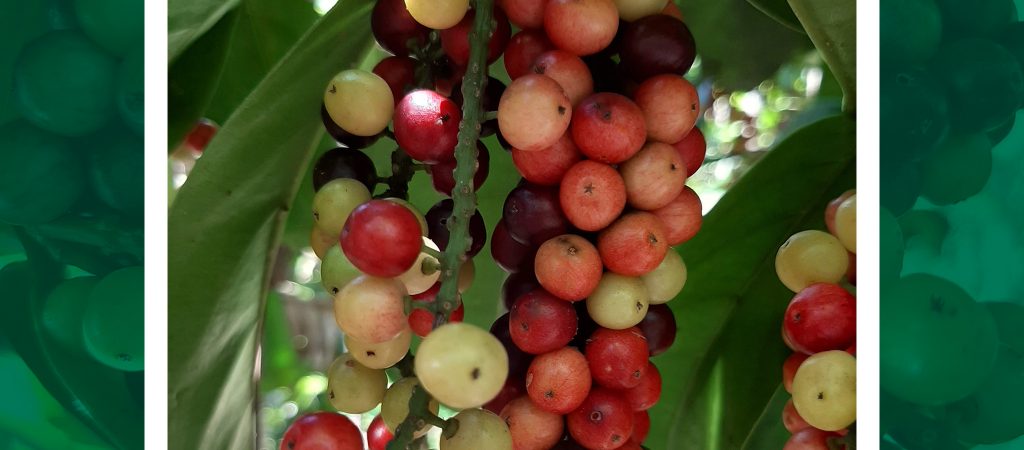by Kyle Ramiel Dalangin

Have you ever thought about the possibility that indigenous fruits may have more nutritional benefits beyond our knowledge? And therapeutic properties, too?
Dr. Katherine Castillo-Israel, a faculty member at the UPLB Institute of Food Science and Technology (IFST) of the College of Agriculture and Food Science, certainly did.
This led her and two other UPLB scientists to discover the wonders of the Philippine indigenous bignay (Antidesma bunius L. (Spreng.) and lipote (Syzygium polycephaloides (C.B. Rob.) Merr.) berries.
The study aims to fill the research gaps on berries and their nutritional benefits with support from the Functional Food Program of the Philippine Council for Health Research and Development of the Department of Science and Technology (DOST-PCHRD).
DOST-PCHRD’s BerryPinoy Program studies the indigenous berries in the Philippines and their potential benefits beyond the known nutritional value they possess.
“If we can prove their nutritional and possible therapeutic properties, then we can promote the utilization of these berries into functional foods,” Dr. Castillo-Israel said.
Unleashing the latent power of berries
The BerryPinoy Program studies the antioxidant properties of indigenous berries, specifically bignay and lipote, and their ability to provide cure for metabolic disorders associated with obesity.
Under this program are two projects. One is the “Philippine Indigenous Berries: Bioactive components and in vitro biochemical activities,” which is led by Dr. Castillo-Israel.
“Philippine Indigenous Berries: In Vivo Studies on Toxicity and Effects on Biomarkers of Obesity and Associated Metabolic Disorders (Dyslipidemia, Inflammation, and Oxidative Stress,” on the other hand, is led by Dr. Liezl M. Atienza of the College of Human Ecology and Dr. Ma. Amelita C. Estacio of the College of Veterinary Medicine.
Dr. Castillo-Israel studies the bioactive components and bioactivity of lipote and two varieties of bignay; and the effects of processing methods on the bioactivity of these fruits .
The research found that maturity and processing methods affect the antioxidant contents and activity of the berries. The antioxidant properties are highest in fully ripe flesh and seeds of both bignay varieties, while unripe lipote has appreciable phenolic and flavonoid content.
Heat treatment, specifically hot water blanching, was also found to produce higher antioxidant contents and activities compared to steam blanching and no heat treatment.
“Antioxidants prevent cancer by scavenging free-radicals in the cells. We can say that these have anti-cancer properties due to their high antioxidant capacities,” Dr. Castillo-Israel stated.
Benefits of berries
On top of their exceptional properties, these berries are also very tasteful. From jams and beverages to jellies and ice creams, bignay and lipote are ingredients that add flavor to food products.
Increased production of these berries will help not only MSMEs and industry, but also the farmers.
“These fruits which were once neglected on the farm will have their value realized for utilization into high-value products,” Dr. Castillo-Israel said.
A fully developed technology and high demand for both bignay and lipote will provide our farmers with a sure market for their produce. Who wouldn’t want a delicious fruit with tons of nutritional value?
As bignay is a shrub, it can be easily reproduced within a short period of time. Lipote, on the other hand, is a tree and requires years for it to fully grow and produce fruits.
The country currently does not produce a large volume of both berries, maybe it is time to start planting now.
Source: https://bit.ly/3noRCMq
